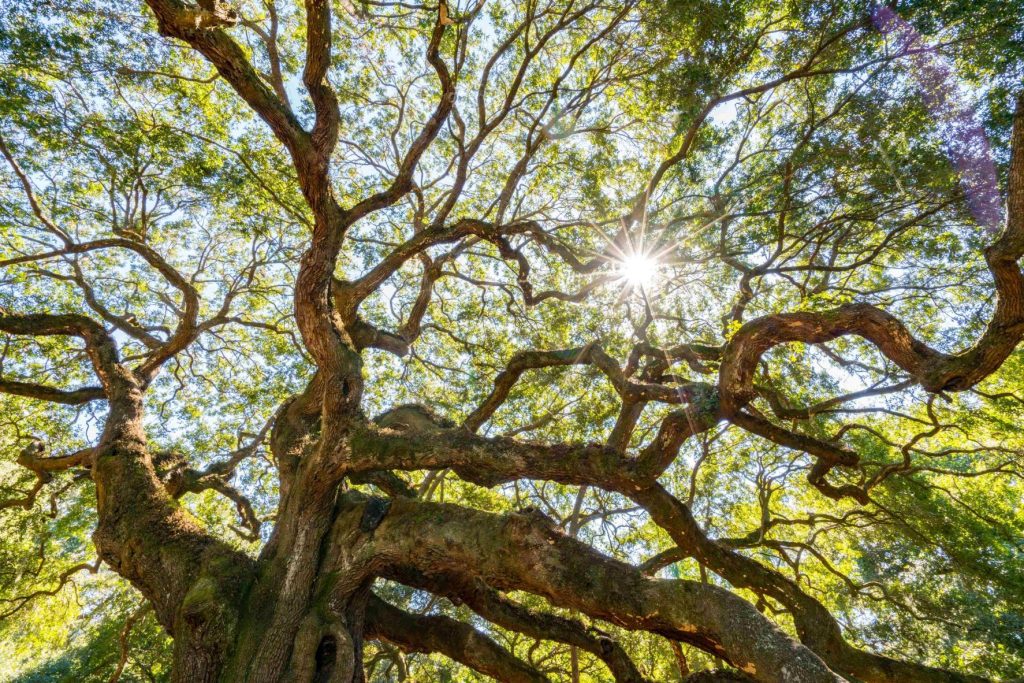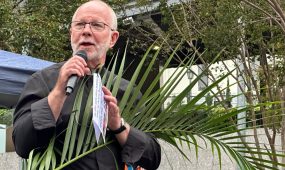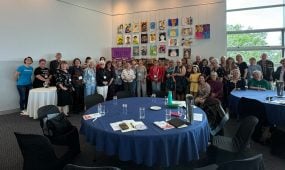Opportunistic acts of kindness: “heroism in the daily rhythm” of life
Reflections
“Opportunistic acts of kindness, which I call ‘OAK’, are a way of loving others, as set out in ‘the golden rule’ of treating others as we would like to be treated…The acronym ‘OAK’ reminds us that oak trees have historically symbolised qualities underpinning kind actions,” says Cathedral community member Ken Willett

Have you ever stood under a mature oak tree? Or seen one up-close? A mature oak tree is a majestic, awe-inspiring sight. Oak trees are national tree emblems in several countries, including Denmark, Croatia, England, Ireland, Poland, among others. Across millennia and cultures, oak trees have symbolised various God-like qualities, such as kindness, protection, justice, strength, stability, endurance, wisdom and honour.
Opportunistic acts of kindness, which I call “OAK”, are a way of loving others, as set out in “the golden rule” of treating others as we would like to be treated (Matthew 7.12). The acronym “OAK” reminds us that oak trees have historically symbolised qualities underpinning kind actions.
Advertisement
Proliferation of OAK would help to positively transform the world, as Archbishop Desmond Tutu observed:
“Do your little bit of good where you are; it’s those little bits of good put together that overwhelm the world.”
An iconic example of OAK is found in “The Parable of the Good Samaritan”. This is about a man from an apparently antagonistic people who rescued and paid for the rehabilitation of a stranger who had been robbed, bashed and left for dead.
Thousands of Good Samaritans, including members of local Anglican communities, engaged in OAK following the recent flooding in south-east Queensland and north-east New South Wales. They cleaned-up muddy homes and businesses, raised funds and collected and distributed much needed donations to help strangers whose lives were shattered.
While the flood clean-up involved both individual and coordinated efforts, which were covered in the news, most OAK opportunities are not high-profile. OAK may be anything that lifts another person up.
OAK opportunities are prevalent – most people encounter these daily. Many opportunities may be undertaken by one person. Others require collective responses.
Alertness and agility are often required to undertake OAK because opportunities may not be glaringly obvious, may arise unexpectedly and may sometimes warrant immediate responses. The “Good Samaritan” and flood-response stories fall into the last two categories.

“Have you ever stood under a mature oak tree? Or seen one up-close? A mature oak tree is a majestic, awe-inspiring sight” (Ken Willett)
OAK may be material (such as cash, a cold drink or a warm blanket), relational or both. The appropriateness of the response depends on the contextual circumstances.
Relational opportunities are sometimes overlooked or avoided, whether out of shyness, fear or busyness. Yet, seemingly small relational OAK can significantly improve the wellbeing of others, and may include:
- showing interest in another’s wellbeing
- being available
- inviting people to tell their stories
- attentive listening
- not being judgemental about a person’s contribution to or handling of a problem
- empathetic reactions (for example, not dismissing the severity or impacts of a person’s negative feelings)
- spending time with lonely people and offering to join them in activities they enjoy
- a friendly smile, wave or other gesture
- a complimentary remark
- a sincere expression of appreciation
- helping with a clean-up, repair or flat tyre
- collecting and binning litter.
The value of attentive listening can’t be overestimated. It involves minimal interruptions. To ensure and signal understanding, it may include starting responses with empathetic summaries of messages received, highlighting positive aspects of responses to circumstances, and asking questions. In The Kindness Revolution, social psychologist Hugh Mackay (2021, p.83) highlighted the value of listening attentively:
“Listening is one of the most precious gifts we can give each other. It’s one of the most potent symbols of love and friendship. It’s one of the loveliest expressions of kindness. It’s one of the greatest sources of encouragement to the discouraged, confidence to the insecure, and comfort to the emotionally wounded.”
Advertisement
Undertaking OAK shows a caring attitude that can uplift people in distress and encourage them to be more receptive to further support.
OAK initiatives make givers, as well as recipients, better off. As noted in Acts 20.35, “It is more blessed to give than to receive”. Support for this insight is provided by modern economic and psychological research.
For example, economist Bruno Frey (2008, p.86) summarised results of his econometric research with these words:
“In sum, volunteering is rewarding for volunteers in terms of higher life satisfaction…causally, volunteering makes people happy.”
And, psychologist David Ludden (2017, p.5) observed that:
“Research shows that giving benefits us under two conditions. First, we have to give willingly. And second, we have to believe our act of altruism will have a positive impact. When these two conditions are meant, we truly are happier and healthier when we give than when we receive.”
Neighbour Day, RUOK? Day and World Kindness Day provide occasions to promote OAK within a church community. When individuals and groups initiate OAK, more OAK may be induced because helpers feel good and their example encourages others to join in, fostering a kindness culture. This was recognised by C.S. Lewis in Mere Christianity, which is based on Lewis’ World War II radio broadcasts (2017, p.132). Psychology researchers Jamil Zaki (2016, p.1), Afshan Mohemadali (2020, pp. 2-3), and Hugh Mackay (2021, p.241) all confirm that kindness spreads.
Related Story
 Features
Features
The Beatles’ insights into loneliness are still relevant 55 years on
For example, Jamil Zaki found that:
“…people imitate not only the particulars of positive actions, but also the spirit underlying them. This implies that kindness itself is contagious, and that that it can cascade across people, taking on new forms along the way.”
A growing kindness culture facilitates not only more OAK, but also larger-scale and more complex initiatives involving groups. This is analogous to an oak tree producing many acorns that then become acorn-producing trees, and so on.
In Candles in the Dark: Faith, Hope and Love in a Time of Pandemic, former Archbishop of Canterbury Rowan Williams (2020, pp. 24-26) acknowledged the importance of those who unobtrusively persist in undertaking OAK as part of their daily lives, and the contribution this makes in the lives of others and to the establishment of a kindness culture in a church community.
He described their activities as “heroism in the daily rhythm” of life.





